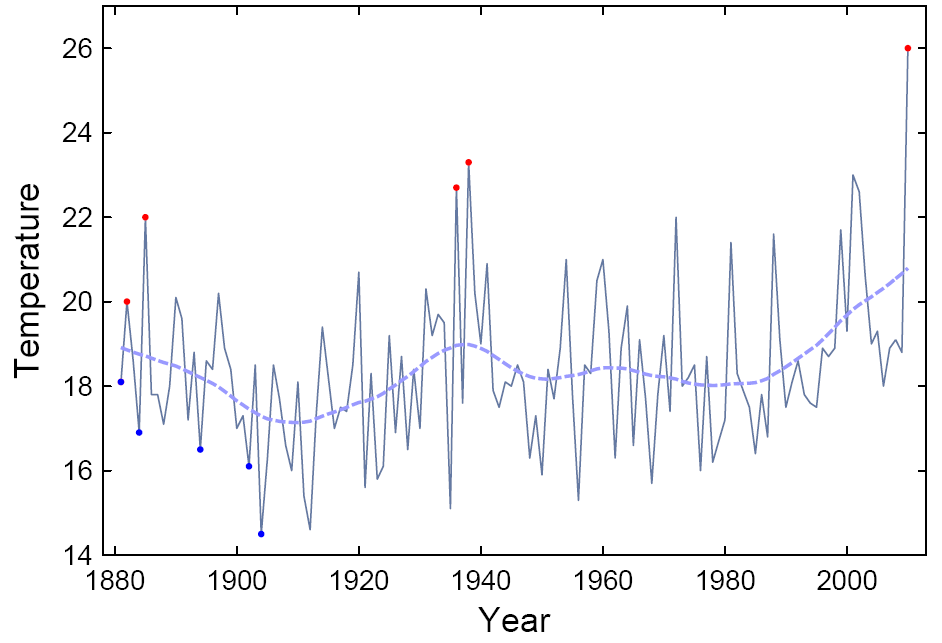We develop a theoretical approach to quantify the effect of long-term trends on the expected number of extremes in generic time series, using analytical solutions and Monte Carlo simulations. We apply our method to study the effect of warming trends on heat records. We find that the number of record-breaking events increases approximately in proportion to the ratio of warming trend to short-term standard deviation. Short-term variability thus decreases the number of heat extremes, whereas a climatic warming increases it. For extremes exceeding a predefined threshold, the dependence on the warming trend is highly nonlinear. We further find that the sum of warm plus cold extremes increases with any climate change, whether warming or cooling. We estimate that climatic warming has increased the number of new global-mean temperature records expected in the last decade from 0.1 to 2.8. For July temperature in Moscow, we estimate that the local warming trend has increased the number of records expected in the past decade fivefold, which implies an approximate 80% probability that the 2010 July heat record would not have occurred without climate warming.I'm still mulling over how much I believe the causal claim here, but I really like the technique of modeling record-breaking as a function of the system's state over time. Some other potential applications immediately spring to mind...
[sustainable] development | climate | policy | economics | political econ. | stats | data | code | journals | books | our research| links
10.28.2011
Attributing climate records to climate change
Stefan Rahmstorf (of RealClimate) and Dim Coumou just published a pretty interesting paper in this week's PNAS, in which they claim last summer's Moscow heat wave was 80% likely to have been due to the observed warming trend in the city. There's a great writeup of the paper (including how and why it contradicts an earlier finding claiming that the heat wave was not due to trends; urban heat island fans should check that one out), but what's particularly noteworthy is the methodology by which they claim attribution of the heat wave to the climate trend:
Labels:
climate,
climate change,
statistics
Subscribe to:
Post Comments (Atom)

Not sure if Stefan references it, but you might find this paper interesting in that regard
ReplyDeleteStatistical properties of record-breaking temperatures
Author(s): Newman WI, Malamud BD, Turcotte DL
Source: PHYSICAL REVIEW E Volume: 82 Issue: 6 Article Number: 066111 Part: Part 2 Published: DEC 9 2010
That said, note also Roger Pielke's reservation about the time span analysed http://rogerpielkejr.blogspot.com/2011/11/anatomy-of-cherry-pick.html , given short shrift here http://www.realclimate.org/index.php/archives/2011/10/the-moscow-warming-hole/
Thanks for the Newman paper! Very very nice.
ReplyDeleteThere's a lot of back and forth between Pielke and Rahmstorff in the comments of the realclimate.org article now. See here, for example:
http://www.realclimate.org/index.php/archives/2011/10/the-moscow-warming-hole/#more-9247